Ep. 77: John Roulac, founder & Chief Hemp Officer at RE Botanicals. Roulac is founder & former CEO of superfood and hemp industry leader – Nutiva ||
.
On episode 77 we welcome John Roulac – founder & Chief Hemp officers at RE Botanicals. For the production of Fiber and CBD, the potential reach and Hemp’s total production footprint is vast. So, is this the perfect opportunity to prove out the many values of regenerative agriculture for diverse stakeholders in broader markets? John Roulac thinks so, and we sit down for a few to learn more about it.
.
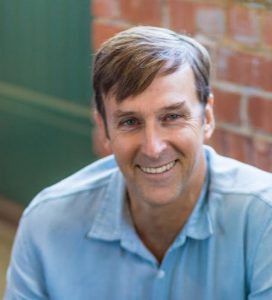 John Roulac started natural and superfoods brand Nutiva in 1999 because of his deeply held belief that it is his purpose to challenge the industrial food model and create a better food system to nourish people, communities, and our planet. Through his leadership, Nutiva has become one of the fastest-growing superfoods company in the world. Nutiva has been named one of Inc. Magazine’s fastest-growing private companies in America for seven years in a row – with sales topping $100mm in 2015.
John Roulac started natural and superfoods brand Nutiva in 1999 because of his deeply held belief that it is his purpose to challenge the industrial food model and create a better food system to nourish people, communities, and our planet. Through his leadership, Nutiva has become one of the fastest-growing superfoods company in the world. Nutiva has been named one of Inc. Magazine’s fastest-growing private companies in America for seven years in a row – with sales topping $100mm in 2015.
.
As you’ll hear in our 45 conversation the vast majority of USA grown hemp uses harsh chemical fertilizers, rotated with industrial GMO corn and soy and contributes to climate change and ocean die off. As John tells us – RE Botanicals is commitment to the highest quality, and insures you that the product you consume is pure and organic. They source differentiated products in a new world of Hemp production. For your future CBD needs – might want to look under the hood a bit and determine for yourself why Sourcing Matters.
.
TuneIn to hear what’s going on with the future production of hemp, and regenerative agriculture in the United States.
–


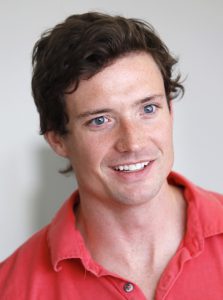 BIO: Luke Holden grew up in Cape Elizabeth, Maine – a third-generation lobsterman who started learning the trade at age 13. After attending Georgetown University and beginning an investment banking career on Wall Street, Luke was remiss to find that every lobster roll available in New York was overpriced, drowning in mayo, and diluted with celery. He craved a real Maine-style roll and simply couldn’t find one.
BIO: Luke Holden grew up in Cape Elizabeth, Maine – a third-generation lobsterman who started learning the trade at age 13. After attending Georgetown University and beginning an investment banking career on Wall Street, Luke was remiss to find that every lobster roll available in New York was overpriced, drowning in mayo, and diluted with celery. He craved a real Maine-style roll and simply couldn’t find one.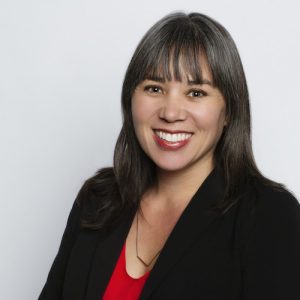 BIO: Before joining the foundation, Teresa Ish was the seafood project manager for the Corporate Partnerships Program at Environmental Defense Fund, where she worked with leading seafood buyers to develop and implement sustainable seafood purchasing policies. During her tenure at EDF, she played an instrumental role in merging the organization’s seafood buyer work and its extensive experience in the fishery policy arena. Prior to joining EDF, she co- founded FishWise and served as its director of science.
BIO: Before joining the foundation, Teresa Ish was the seafood project manager for the Corporate Partnerships Program at Environmental Defense Fund, where she worked with leading seafood buyers to develop and implement sustainable seafood purchasing policies. During her tenure at EDF, she played an instrumental role in merging the organization’s seafood buyer work and its extensive experience in the fishery policy arena. Prior to joining EDF, she co- founded FishWise and served as its director of science. With three consecutive James Beard nods, Kris Komori is the rock star of Idaho’s chef world. A graduate of the College of Idaho, he sharpened his kitchen skills in Portland before moving to the Gem State. Komori’s creative, constantly changing menus drew fast admiration when State & Lemp opened in 2013. Most recently, he and his team have been developing a new concept and restaurant that will launch in downtown Boise soon.
With three consecutive James Beard nods, Kris Komori is the rock star of Idaho’s chef world. A graduate of the College of Idaho, he sharpened his kitchen skills in Portland before moving to the Gem State. Komori’s creative, constantly changing menus drew fast admiration when State & Lemp opened in 2013. Most recently, he and his team have been developing a new concept and restaurant that will launch in downtown Boise soon.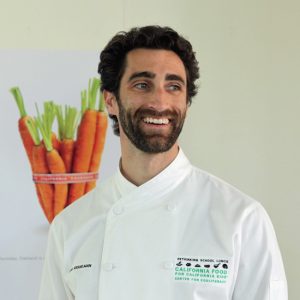 Kesselman’s programs encourage schools to teach and model education for sustainable living – beginning with a good diet. The students that Adam and Vince work with have an opportunity to experience and understand how nature sustains life and how to live accordingly. One such program – California Thursdays – now servers over 334 million school meals a year, which accounts for 33% of the school meals in California. Every meal serves California-grown, for California kids – and of which has focus on food quality and integrity from the source. Economists estimate that every dollar spent on local food can generate up to an additional $1.40 in spending, supporting local economies. So, built upon that – what’s it worth to any of us to provide our kids and our neighbor’s kids preventative healthcare and good consumption habits – things that tend to carry-on for a lifetime.
Kesselman’s programs encourage schools to teach and model education for sustainable living – beginning with a good diet. The students that Adam and Vince work with have an opportunity to experience and understand how nature sustains life and how to live accordingly. One such program – California Thursdays – now servers over 334 million school meals a year, which accounts for 33% of the school meals in California. Every meal serves California-grown, for California kids – and of which has focus on food quality and integrity from the source. Economists estimate that every dollar spent on local food can generate up to an additional $1.40 in spending, supporting local economies. So, built upon that – what’s it worth to any of us to provide our kids and our neighbor’s kids preventative healthcare and good consumption habits – things that tend to carry-on for a lifetime.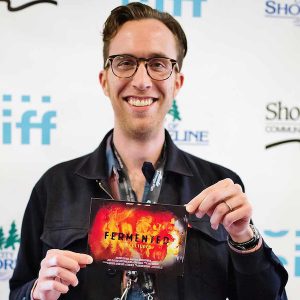 From episodes of Anthony Bourdain’s “Parts Unknown” and the PBS & Netflix program – “Mind of a Chef” – Cianfrani has been worked as a producer, director and editor for New York City – based – Zero-Point-Zero (ZPZ) production. Most recently, Jon directed the feature documentary titled “Fermented” which is scheduled to air online in April 2019. Hosted by Chef Edward Lee, the film poses the question: “What is Fermentation?” to chefs and artisans on the west coast, Chicago, and rural Japan.
From episodes of Anthony Bourdain’s “Parts Unknown” and the PBS & Netflix program – “Mind of a Chef” – Cianfrani has been worked as a producer, director and editor for New York City – based – Zero-Point-Zero (ZPZ) production. Most recently, Jon directed the feature documentary titled “Fermented” which is scheduled to air online in April 2019. Hosted by Chef Edward Lee, the film poses the question: “What is Fermentation?” to chefs and artisans on the west coast, Chicago, and rural Japan.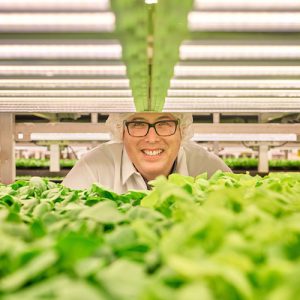 AeroFarms is a leading clean-technology champion, building and operating state-of-the art indoor vertical farms in major cities around the world. Helping set new culinary standards for freshness and flavor, AeroFarms has been recognized as a Global Cleantech 100, Inc.com’s Top 25 Disruptive Companies, Winner of the World Technology Award for Most Impactful Environmental Company, and Finalist for The Circular Awards of The World Economic Forum.
AeroFarms is a leading clean-technology champion, building and operating state-of-the art indoor vertical farms in major cities around the world. Helping set new culinary standards for freshness and flavor, AeroFarms has been recognized as a Global Cleantech 100, Inc.com’s Top 25 Disruptive Companies, Winner of the World Technology Award for Most Impactful Environmental Company, and Finalist for The Circular Awards of The World Economic Forum.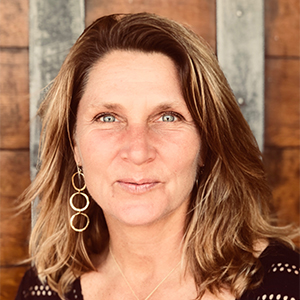 The goal of regenerative organic agriculture is to offer practical solutions to the world’s biggest social and ecological challenges. We’ve learned that we’re beyond the point of sustainability and we need to regenerate the soil and land that supports us, the animals that nourish us, and the farmers and workers that feed us. This has developed into a call to action of the ROA and defined a path forward where we’re all part of the solution.
The goal of regenerative organic agriculture is to offer practical solutions to the world’s biggest social and ecological challenges. We’ve learned that we’re beyond the point of sustainability and we need to regenerate the soil and land that supports us, the animals that nourish us, and the farmers and workers that feed us. This has developed into a call to action of the ROA and defined a path forward where we’re all part of the solution.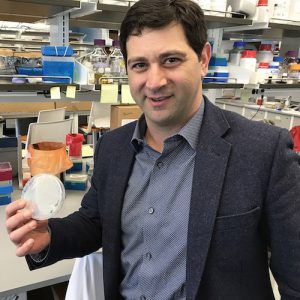 Accounting for over 50% of total seafood sourced, aquaculture has developed some scale issues.. It’s not as simple as saying that we’ll continue to move in the direction of farming more fish. It’s not just about the higher trophic level fish we consume. The issue is that much of the aquaculture infrastructure is reliant on pulling from the smaller fish in the sea – to feed the larger fish we consume. The alternative feedstuff for our aquaculture fish can also often soy, or other crops grown on land using input-based conventional practice leading to an unsustainable perpetual cycle of robbing Peter to pay Paul.
Accounting for over 50% of total seafood sourced, aquaculture has developed some scale issues.. It’s not as simple as saying that we’ll continue to move in the direction of farming more fish. It’s not just about the higher trophic level fish we consume. The issue is that much of the aquaculture infrastructure is reliant on pulling from the smaller fish in the sea – to feed the larger fish we consume. The alternative feedstuff for our aquaculture fish can also often soy, or other crops grown on land using input-based conventional practice leading to an unsustainable perpetual cycle of robbing Peter to pay Paul.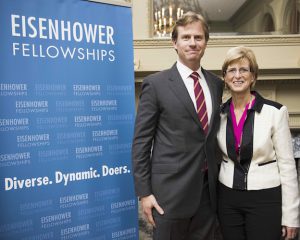 Governor Whitman is American Republican politician and author who served as the 50th Governor of New Jersey, from 1994 to 2001, and was the Administrator of the Environmental Protection Agency (EPA) in the administration of President George W. Bush from 2001 to 2003. Whitman was New Jersey’s first and, to date, only female governor, and also the first Republican woman to be reelected governor. Governor Christine Whitman is currently President of The Whitman Strategy Group (WSG), a consulting firm that specializes in energy and environmental issues.
Governor Whitman is American Republican politician and author who served as the 50th Governor of New Jersey, from 1994 to 2001, and was the Administrator of the Environmental Protection Agency (EPA) in the administration of President George W. Bush from 2001 to 2003. Whitman was New Jersey’s first and, to date, only female governor, and also the first Republican woman to be reelected governor. Governor Christine Whitman is currently President of The Whitman Strategy Group (WSG), a consulting firm that specializes in energy and environmental issues.